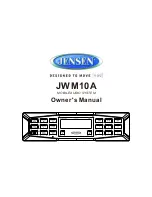
3
INSTALLATION & WIRING
Terminal Layout
ELC-EX08NNDN
ELC-EX08NNAN
ELC-EX08NNNR
ELC-EX08NNNT
ELC-EX08NNDR
ELC-EX08NNDT
ELC-EX16NNDR
ELC-EX16NNDT
ELC-EX06NNNI
S/S
X0
X2
X5
X6
X7
X3
X1
X4
COM
X0
X2
X5
X6
X7
X3
X1
X4
C0
Y0
Y2
Y5
Y6
Y7
Y3
Y1
Y4
S/S
X0
X2
X3
X1
C0
Y0
Y1
C2
C1
Y2
C3
C3
S/S
X0
X2
X3
X1
C0
Y0
Y2
Y3
Y1
Y4
Y5
Y6
X4
X6
X7
X5
Y7
C0
Y0
C1
C2
Y2
Y1
C3
Y3
C4
C5
Y5
Y4
3.1. System Assembly
Procedure:
1. Open the extension cover on the side of
the unit with a screw driver so that the
external connector is exposed.
2. Raise the extension hooks on the top
and bottom sides of the unit with a
screwdriver.
3. Align the pins and holes in the four
corners of the control unit and extension
unit, and insert the pins into the holes
so that there is no gap between the
units.
4. Press down the expansion hooks raised
in step 2 to secure the unit.
3.2. Installation of the DIN rail
The ELC can be secured to a cabinet by using the DIN rail that is 35mm high with a depth of 7.5mm.
When mounting the ELC on the DIN rail, be sure to use the end bracket to stop any side-to-side
motion of the ELC, thus to reduce the chance of the wires being pulled loose. At the bottom of the
ELC is a small retaining clip.
























